
Eggs comprise a fundamental food product consisting of a protective shell, albumen (egg white), and yolk, serving as a primary ingredient in countless culinary applications. This category includes varieties classified by size (small, medium, large, extra-large, jumbo) and grade (AA, A, B), which indicate quality and freshness. Further differentiation is made by farming methods, encompassing conventional, cage-free, free-range, pasture-raised, and organic options. These products are typically washed and inspected to ensure safety while maintaining their structural integrity, requiring consistent refrigeration to preserve quality. Eggs serve multiple culinary functions—from providing structure and leavening in baked goods to acting as a binding agent in patties and a base for emulsions like mayonnaise and custards. Their unique chemical properties, enabling them to foam, thicken, and enrich, make them an indispensable ingredient in both professional and home kitchens. Available in standardized cartons, eggs provide a versatile, nutrient-dense component that is essential to a wide range of recipes. The category continues to evolve with modern demands, offering innovations such as nutritionally-enhanced eggs with added omega-3s and vitamin D, while maintaining their foundational role in global cuisines.


 Atta, Flours & Sooji
Atta, Flours & Sooji Wheat Atta
Wheat Atta Sooji (Semolina)
Sooji (Semolina) Organic Flours
Organic Flours Besan (Gram Flour)
Besan (Gram Flour) Rice Flour
Rice Flour Rice & Rice Products
Rice & Rice Products Rice Cakes
Rice Cakes Poha (Flattened Rice)
Poha (Flattened Rice) Brown & Red Rice
Brown & Red Rice Basmati Rice
Basmati Rice Non-Basmati Rice
Non-Basmati Rice Dals & Pulses
Dals & Pulses Whole Pulses (Rajma, Chana)
Whole Pulses (Rajma, Chana) Masoor Dal
Masoor Dal Chana Dal
Chana Dal Toor Dal
Toor Dal Moong Dal
Moong Dal Edible Oils
Edible Oils Blended Oils
Blended Oils Coconut Oil
Coconut Oil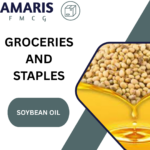 Soybean Oil
Soybean Oil Mustard Oil
Mustard Oil Olive Oil
Olive Oil Sunflower Oil
Sunflower Oil Salt, Sugar & Jaggery
Salt, Sugar & Jaggery White & Brown Sugar
White & Brown Sugar Sea Salt & Himalayan Salt
Sea Salt & Himalayan Salt Table Salt
Table Salt Jaggery (Powdered & Block)
Jaggery (Powdered & Block) Herbs & Spices
Herbs & Spices Herbs & Seasoning Packets
Herbs & Seasoning Packets Spice Blends (Masalas)
Spice Blends (Masalas) Whole Spices
Whole Spices Powdered Spices
Powdered Spices Fresh Herbs
Fresh Herbs Dried Herbs
Dried Herbs Sauces, Spreads & Condiments
Sauces, Spreads & Condiments Honey, Jam & Spreads
Honey, Jam & Spreads Soy & Chili Sauce
Soy & Chili Sauce Chutneys
Chutneys Pickles
Pickles Tomato Ketchup
Tomato Ketchup Mayonnaise & Dressings
Mayonnaise & Dressings Breakfast Cereals
Breakfast Cereals Oats & Muesli
Oats & Muesli Granola
Granola Cornflakes
Cornflakes
 Tea
Tea Tea Bags
Tea Bags Herbal & Specialty Tea
Herbal & Specialty Tea Green Tea
Green Tea Black Tea
Black Tea Coffee
Coffee Instant Coffee
Instant Coffee Ground Coffee
Ground Coffee Coffee Beans
Coffee Beans Health & Energy Drinks
Health & Energy Drinks Health Supplements Drinks
Health Supplements Drinks Energy Drinks
Energy Drinks Protein Shakes
Protein Shakes Fruit Juices & Drinks
Fruit Juices & Drinks Coconut Water
Coconut Water Nectars & Juice Drinks
Nectars & Juice Drinks 100% Juices
100% Juices Soft Drinks & Sodas
Soft Drinks & Sodas Cola
Cola Diet Sodas
Diet Sodas Fruit Sodas
Fruit Sodas Lemonade
Lemonade Water
Water Sparkling Water
Sparkling Water Packaged Drinking Water
Packaged Drinking Water Flavored Water
Flavored Water
 Namkeen & Savory Snacks
Namkeen & Savory Snacks Extruded Snacks
Extruded Snacks Mixtures & Bhujia
Mixtures & Bhujia Chips & Crisps
Chips & Crisps Biscuits & Cookies
Biscuits & Cookies Cookies
Cookies Digestive & Marie
Digestive & Marie Glucose Biscuits
Glucose Biscuits Cream Biscuits
Cream Biscuits Chocolates & Candies
Chocolates & Candies Sweets & Bubble Gum
Sweets & Bubble Gum Toffees & Hard Candies
Toffees & Hard Candies Chocolate Bars
Chocolate Bars Boxed Chocolates
Boxed Chocolates Cakes & Pastries
Cakes & Pastries Pastries & Danish
Pastries & Danish Cupcakes
Cupcakes Birthday & Celebration Cakes
Birthday & Celebration Cakes Desserts & Ice Cream Toppings
Desserts & Ice Cream Toppings Caramel & Fruit Toppings
Caramel & Fruit Toppings Chocolate Syrup & Sauce
Chocolate Syrup & Sauce Whipped Cream
Whipped Cream Sprinkles & Nuts
Sprinkles & Nuts Nuts & Dry Fruits
Nuts & Dry Fruits Raisins & Apricots
Raisins & Apricots Roasted & Salted Nuts
Roasted & Salted Nuts Almonds, Cashews, Walnuts
Almonds, Cashews, Walnuts
 Milk
Milk Fresh Milk (Full Cream, Toned)
Fresh Milk (Full Cream, Toned) Flavored Milk
Flavored Milk Butter & Margarine
Butter & Margarine Margarine
Margarine Salted & Unsalted Butter
Salted & Unsalted Butter Cheese
Cheese Sliced Cheese
Sliced Cheese Paneer (Cottage Cheese)
Paneer (Cottage Cheese) Cream Cheese & Spreads
Cream Cheese & Spreads Cheese Blocks (Cheddar, Mozzarella)
Cheese Blocks (Cheddar, Mozzarella) Yogurt & Curd
Yogurt & Curd Set Curd
Set Curd Yogurt Drinks (Lassi, Chaas)
Yogurt Drinks (Lassi, Chaas) Greek Yogurt
Greek Yogurt Flavored Yogurt
Flavored Yogurt Cream & Desserts
Cream & Desserts Custards & Mousses
Custards & Mousses Fresh Cream
Fresh Cream Eggs
Eggs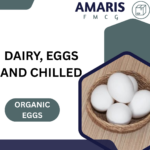 Organic Eggs
Organic Eggs Brown Eggs
Brown Eggs Farm Eggs
Farm Eggs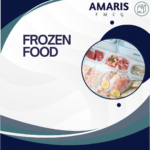
 Frozen Vegetables
Frozen Vegetables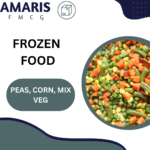 Peas, Corn, Mix Veg
Peas, Corn, Mix Veg Frozen Snacks & Appetizers
Frozen Snacks & Appetizers Samosas, Spring Rolls
Samosas, Spring Rolls Nuggets & Finger Foods
Nuggets & Finger Foods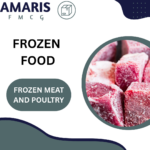 Frozen Meat & Poultry
Frozen Meat & Poultry Frozen Sausages & Hot Dogs
Frozen Sausages & Hot Dogs Frozen Pork
Frozen Pork Frozen Chicken
Frozen Chicken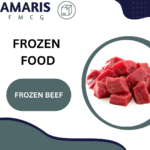 Frozen Beef
Frozen Beef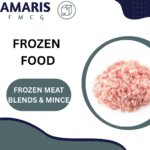 Frozen Meat Blends & Mince
Frozen Meat Blends & Mince Frozen Seafood
Frozen Seafood Frozen Fish Fillets
Frozen Fish Fillets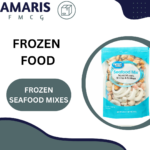 Frozen Seafood Mixes
Frozen Seafood Mixes Ice Cream & Frozen Desserts
Ice Cream & Frozen Desserts Sorbets & Gelato
Sorbets & Gelato Ice Cream Tubs
Ice Cream Tubs Ice Cream Bars & Cones
Ice Cream Bars & Cones
 Oral Care
Oral Care Mouthwash
Mouthwash Toothpaste
Toothpaste Toothbrushes (Manual & Electric)
Toothbrushes (Manual & Electric) Bath & Body
Bath & Body Deodorants & Antiperspirants
Deodorants & Antiperspirants Body Lotions & Moisturizers
Body Lotions & Moisturizers Soaps & Body Wash
Soaps & Body Wash Hair Care
Hair Care Styling Products (Gel, Wax, Spray)
Styling Products (Gel, Wax, Spray) Hair Oils
Hair Oils Shampoo & Conditioner
Shampoo & Conditioner Skincare
Skincare Lip Balm
Lip Balm Moisturizers & Creams
Moisturizers & Creams Face Wash & Cleansers
Face Wash & Cleansers Feminine Hygiene
Feminine Hygiene Tampons
Tampons Sanitary Pads
Sanitary Pads Shaving Needs
Shaving Needs Razors & Blades
Razors & Blades Shaving Cream & Foam
Shaving Cream & Foam
 Vitamins & Supplements
Vitamins & Supplements Multivitamins
Multivitamins Protein Powder
Protein Powder Specialty Supplements (Omega-3, Calcium)
Specialty Supplements (Omega-3, Calcium) Ayurveda & Herbal
Ayurveda & Herbal Herbal Supplements
Herbal Supplements Chyawanprash
Chyawanprash Weight Management
Weight Management Fitness & Workout Accessories
Fitness & Workout Accessories Sports Nutrition
Sports Nutrition Energy Bars & Snacks
Energy Bars & Snacks Electrolyte & Hydration Drinks
Electrolyte & Hydration Drinks Sports Multivitamins
Sports Multivitamins Protein Powders & Shakes
Protein Powders & Shakes
 Dishwashing
Dishwashing Dishwashing Bars & Liquid
Dishwashing Bars & Liquid Dishwasher Detergents
Dishwasher Detergents Laundry
Laundry Fabric Softeners & Whiteners
Fabric Softeners & Whiteners Detergent Powder & Liquid
Detergent Powder & Liquid Detergent Bars
Detergent Bars Floor & Surface Cleaners
Floor & Surface Cleaners Glass & Mirror Cleaners
Glass & Mirror Cleaners All-Purpose Cleaners
All-Purpose Cleaners Floor Cleaners (Liquid, Powder)
Floor Cleaners (Liquid, Powder) Toilet Cleaners
Toilet Cleaners Toilet Cleaning Tablets
Toilet Cleaning Tablets Toilet Brush & Cleaner Sets
Toilet Brush & Cleaner Sets Liquid Toilet Cleaners
Liquid Toilet Cleaners Insecticides & Repellents
Insecticides & Repellents Ant & Cockroach Killers
Ant & Cockroach Killers Mosquito Repellents (Coils, Mats, Sprays)
Mosquito Repellents (Coils, Mats, Sprays) Air Fresheners & Fragrances
Air Fresheners & Fragrances Car Air Fresheners
Car Air Fresheners Essential Oils & Diffusers
Essential Oils & Diffusers Plug-In Air Fresheners
Plug-In Air Fresheners Scented Candles
Scented Candles Room Sprays
Room Sprays Paper Products
Paper Products Tissues & Napkins
Tissues & Napkins Kitchen Towels
Kitchen Towels Toilet Paper
Toilet Paper
 Baby Food & Formula
Baby Food & Formula Cereals & Purees
Cereals & Purees Infant Formula
Infant Formula Diapers & Wipes
Diapers & Wipes Baby Wipes
Baby Wipes Disposable Diapers
Disposable Diapers Baby Bath & Skincare
Baby Bath & Skincare Diaper Rash Cream
Diaper Rash Cream Baby Soap & Shampoo
Baby Soap & Shampoo Baby Lotion & Oil
Baby Lotion & Oil
 Dog Food
Dog Food Dry Dog Food
Dry Dog Food Dog Treats
Dog Treats Wet Dog Food
Wet Dog Food Pet Grooming
Pet Grooming Shampoos & Conditioners
Shampoos & Conditioners Brushes & Combs
Brushes & Combs Flea & Tick Control
Flea & Tick Control Grooming Tools & Kits
Grooming Tools & Kits Pet Accessories
Pet Accessories Litter & Trays (for cats)
Litter & Trays (for cats) Collars & Leashes
Collars & Leashes Toys & Chews
Toys & Chews Bowls & Feeders
Bowls & Feeders Cat Food
Cat Food Wet Cat Food
Wet Cat Food Cat Treats
Cat Treats Dry Cat Food
Dry Cat Food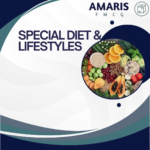
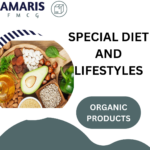 Organic Products
Organic Products Organic Beverages
Organic Beverages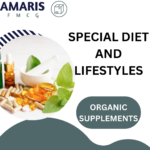 Organic Supplements
Organic Supplements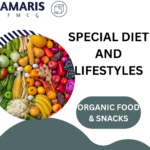 Organic Food & Snacks
Organic Food & Snacks Gluten-Free
Gluten-Free Gluten-Free Beverages
Gluten-Free Beverages Gluten-Free Snacks
Gluten-Free Snacks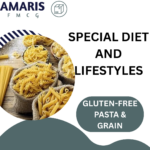 Gluten-Free Pasta & Grains
Gluten-Free Pasta & Grains Gluten-Free Breads & Bakery
Gluten-Free Breads & Bakery Vegan Products
Vegan Products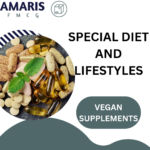 Vegan Supplements
Vegan Supplements Vegan Food & Snacks
Vegan Food & Snacks Vegan Beverages
Vegan Beverages Sugar-Free & No Added Sugar
Sugar-Free & No Added Sugar Sugar-Free Beverages
Sugar-Free Beverages Sugar-Free Snacks
Sugar-Free Snacks Sugar-Free Desserts & Sweets
Sugar-Free Desserts & Sweets Keto-Friendly
Keto-Friendly Keto Beverages
Keto Beverages Keto Supplements
Keto Supplements Keto Snacks
Keto Snacks Diabetic-Friendly
Diabetic-Friendly Diabetic-Friendly Supplements
Diabetic-Friendly Supplements Diabetic-Friendly Health Monitors & Devices
Diabetic-Friendly Health Monitors & Devices









